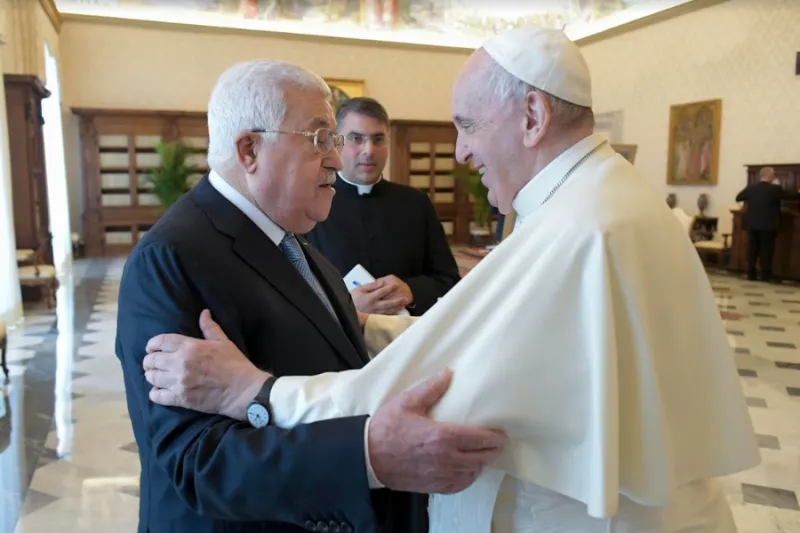
Vatican City, Nov 4, 2021 / 12:00 pm (CNA).
Pope Francis met Thursday with Palestinian President Mahmoud Abbas at the Vatican, where the Secretariat of State stressed the need to restart direct dialogue to achieve a two-state solution with Israel.
Abbas met privately with the pope in the Apostolic Palace on Nov. 4, before entering into discussions with Vatican Secretary of State Cardinal Pietro Parolin and Archbishop Paul Gallagher, the Vatican’s equivalent of a foreign minister.
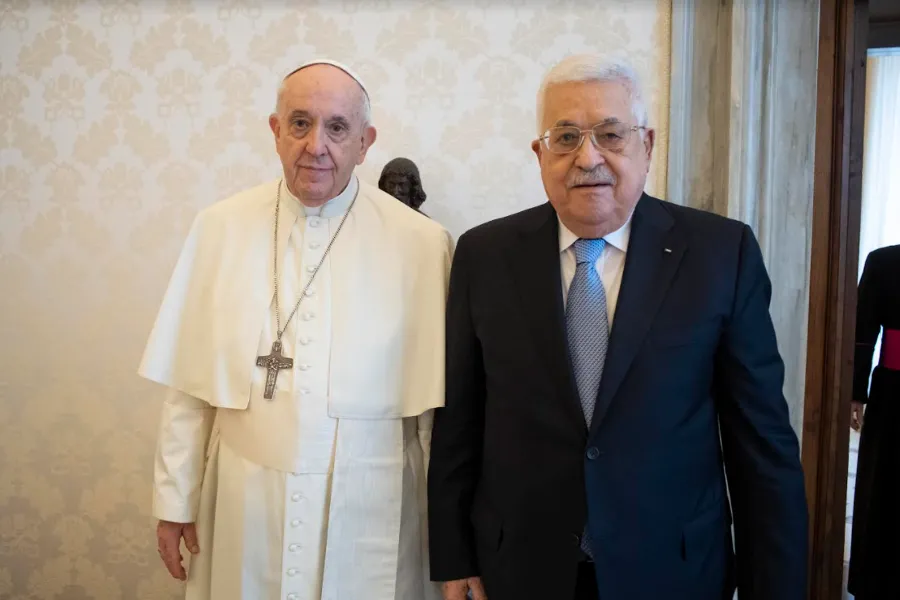
“During the cordial talks in the Secretariat of State … the need to promote human brotherhood and peaceful coexistence among the various faiths was acknowledged,” a Vatican statement said.
“With regard to the peace process between Israelis and Palestinians, it was stressed that it is absolutely necessary to reactivate direct dialogue in order to achieve a two-state solution, also with the help of more vigorous effort on the part of the international community.”
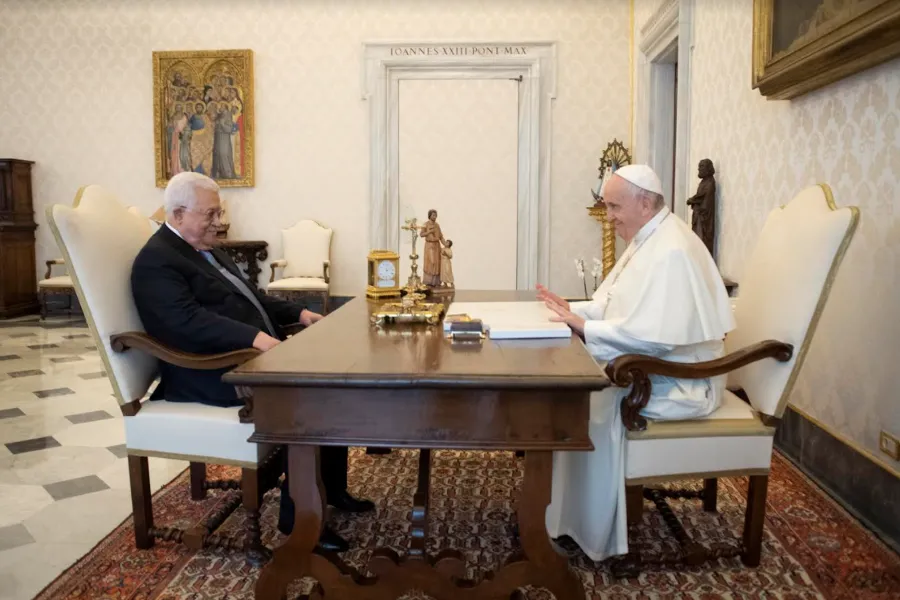
According to the Vatican, the secretariat of state reiterated that Jerusalem must be recognized as “a place of encounter and not of conflict,” and that its status as “a Holy City for all three Abrahamic religions” must be preserved.
“Finally, attention turned to the urgency of working for peace, avoiding the use of weapons, and combating all forms of extremism and fundamentalism,” the Vatican statement said.
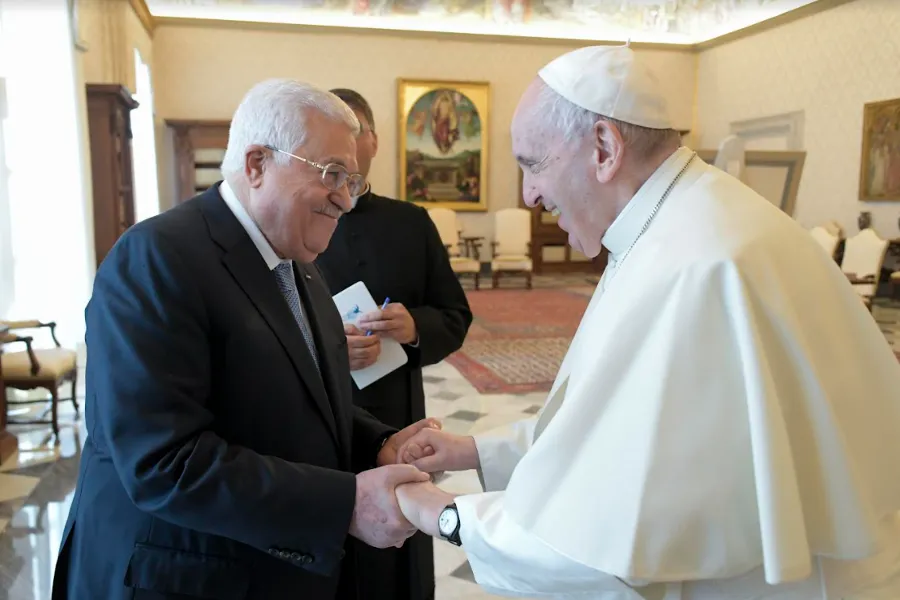
Wafa, the news agency of the Palestinian National Authority, reported Nov. 4 that Abbas briefed the pope on “the importance of jointly confronting the attempts to seize Palestinian property and church property, including through fraudulent sales, particularly in the Old City of Jerusalem.”
The meeting came a week after Israel approved about 3,000 new settler homes in the occupied West Bank.
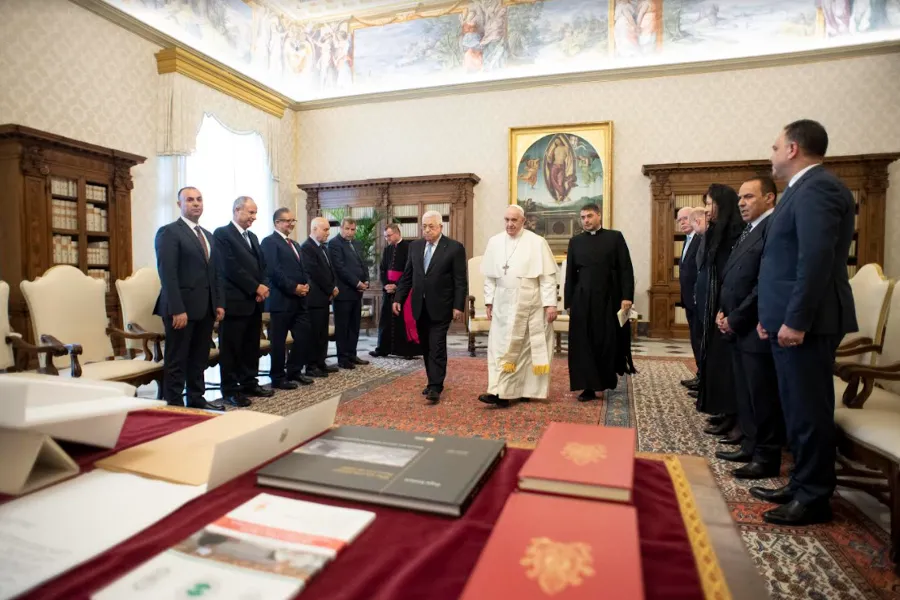
According to Vatican News, the meeting was the pope’s sixth encounter with Abbas at the Vatican. The two met for the first time at a prayer for peace in the Vatican Gardens together with then Israeli President Shimon Peres.
Abbas, 85, has been president of the Palestinian National Authority since 2005 and the chairman of the Palestinian Liberation Organization (PLO) since 2004. He previously served as the first prime minister of the Palestinian Authority in 2003.
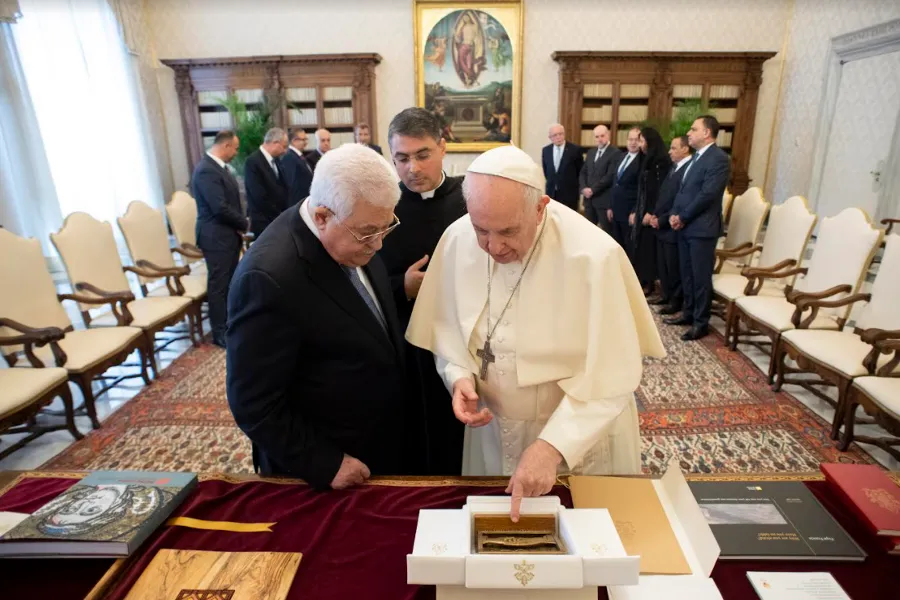
Ahead of the meeting, Abbas spoke on the phone with Pope Francis on Oct. 11, according to a a report from ACI Stampa, CNA’s Italian-language news partner, which said that the Palestinian president’s office stated that the pope underlined the need for a two-state solution.
The Holy See has long supported a two-state solution for Israel and Palestine. The Holy See made official its recognition of the State of Palestine with an agreement signed in 2015.
The Associated Press reported Sept. 21 that a poll by the Palestinian Center for Policy and Survey Research found that nearly 80% of Palestinians want Abbas to resign and 45% of Palestinians believe Hamas should represent them.
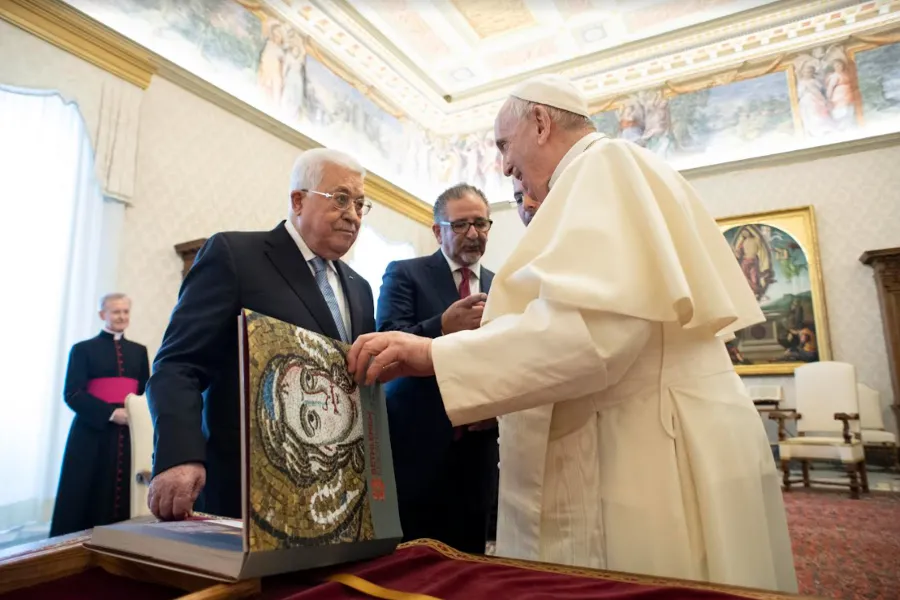
Hamas, the political rival of the Abbas’ Fatah party, has control of the Gaza Strip.
During a surge in violence in the Israel-Gaza conflict last spring, the pope expressed concern that the clashes risked “degenerating into a spiral of death and destruction.”
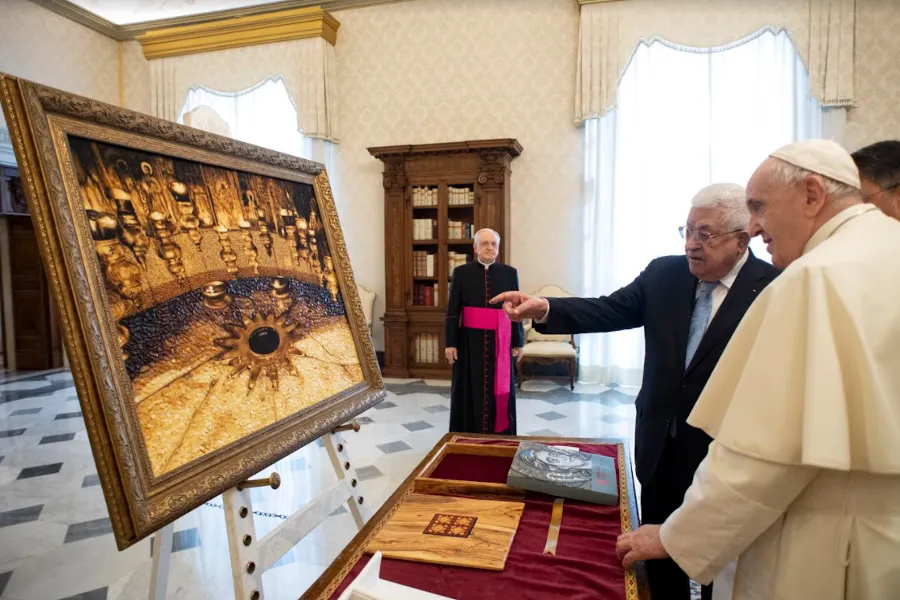
“Furthermore, the crescendo of hatred and violence that is affecting various cities in Israel is a serious wound to fraternity and peaceful coexistence among citizens, which will be difficult to heal if there is not an immediate opening to dialogue,” Pope Francis said May 16.
“I ask myself: where will hatred and revenge lead? Do we really think we will build peace by destroying the other?”
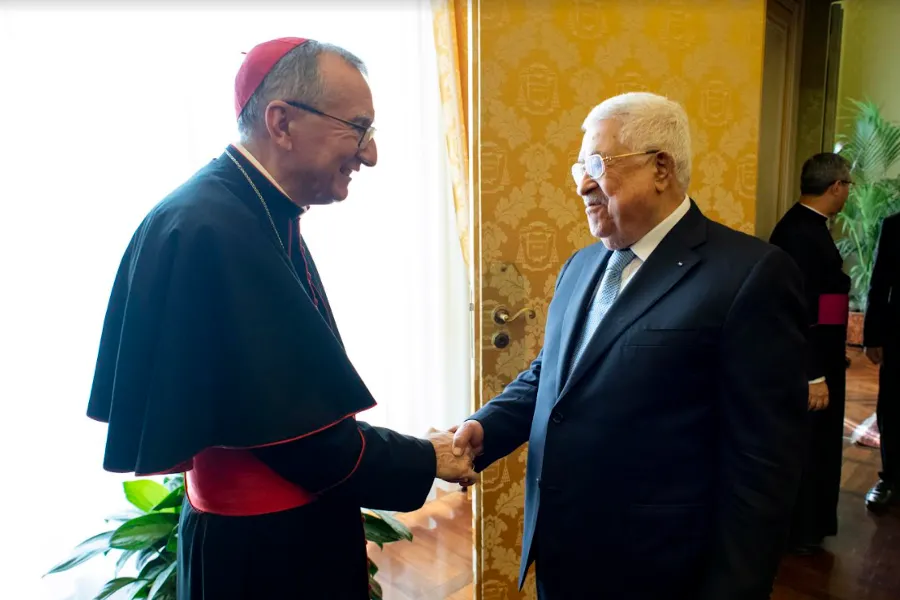
“Let us pray unceasingly that Israelis and Palestinians may find the path of dialogue and forgiveness, to be patient builders of peace and justice, opening up, step by step, to a common hope, to a coexistence among brothers,” Pope Francis said.
If you value the news and views Catholic World Report provides, please consider donating to support our efforts. Your contribution will help us continue to make CWR available to all readers worldwide for free, without a subscription. Thank you for your generosity!
Click here for more information on donating to CWR. Click here to sign up for our newsletter.





What does Pope Francis think Jordan is? The land of Israel was split in two, with more than half of it given to the Arabs as a two-state solution. https://www.jewishvirtuallibrary.org/jsource/images/maps/mandate2.gif
Mahmoud Abbas doesn’t want peace. He wants absolute destruction of Israel and the Jews. He wants a one-state solution! Catholics, we need to do a better job understanding both the history and the present situation. Israel will NEVER BE ABLE TO SATISFY the demands of the “Palestinians” unless they give up all of the land and drown themselves in the sea.
https://www.youtube.com/watch?v=FJjVJfhpah8
Francis will not bring peace to the Middle East, but let him meet with Abbas. And for heaven’s sake, let’s stop looking at the situation there through the prism of AIPAC.